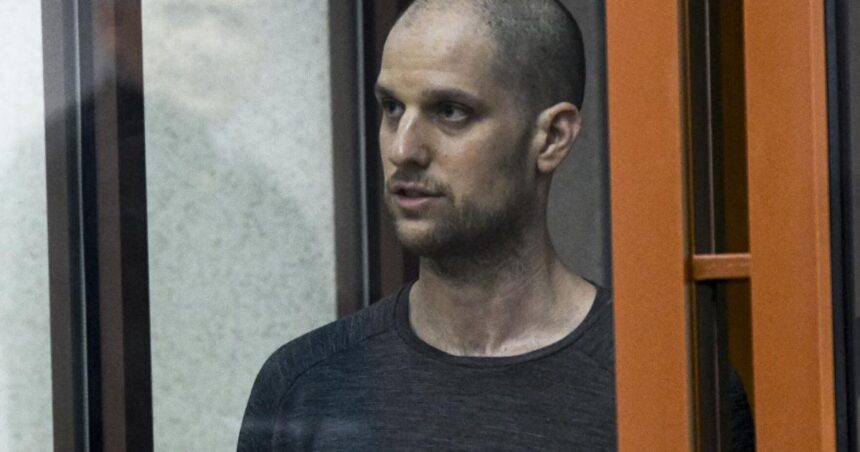The guilty verdict against Evan Gershkovich, a Wall Street Journal correspondent arrested in Russia last year on fake espionage charges, was not surprising, but the speed of the decision was. The accusations lacked evidence, the hearings were secretive, and Gershkovich’s legal team was gagged from discussing the case publicly.
Gershkovich’s arrest, trial, and conviction align with President Vladimir Putin’s agenda to suppress truthful reporting from Russia about the Ukraine invasion and to instill fear in Russians of interacting with foreigners regarding the war.
Russian independent news outlets have been silenced, their journalists imprisoned or forced to leave. Therefore, foreign correspondents are one of the last sources of independent reporting from Russia. Gershkovich’s final published article before his arrest on March 29, 2023, was titled, “Russia’s economy is beginning to unravel,” which exemplifies crucial independent journalism challenging Putin’s narrative of a strong and thriving Russia engaged in a just war.
People are also reading…
Russian prosecutors alleged that Gershkovich, at the behest of Washington, utilized elaborate methods to gather “secret information” about Uralvagonzavod, a Russian weapons factory near Yekaterinburg, where he was arrested and tried.
While the existence of this industrial complex is widely known, the espionage charge allowed Russian prosecutors to keep the entire proceeding under wraps, furthering Putin’s narrative of Western efforts to destabilize Russia.
Putin’s crackdown on free speech, particularly regarding the Ukraine war, persists. According to the Committee to Protect Journalists, Russia is the fourth-most journalist-detaining country globally, with at least 22 journalists in custody, including Gershkovich and Alsu Kurmasheva, a U.S.-Russian dual citizen and an editor with Radio Free Europe/Radio Liberty.
Recently, the Kremlin banned 81 EU media outlets, labeling them as “systematically spreading false information” about the military operation in Ukraine. Additionally, The Moscow Times, now operating outside Russia, was declared an “undesirable organization,” posing risks to anyone in Russia associated with it.
Despite these challenges, there is a glimmer of hope. The swift conclusion of Gershkovich’s trial following closing arguments implies a potential swap deal involving the American reporter for a Russian prisoner in the West. Talks on a possible exchange between the U.S. and Russia are ongoing, with Vadim Krasikov, a Russian assassin serving a life sentence in Germany, being a likely candidate. If successful, Gershkovich could reunite with his family in the U.S.
Having spent 16 months in detention in Moscow’s Lefortovo prison, Gershkovich faces serving his sentence in a high-security penal colony if not part of a swap. Other Americans also detained in Russia could potentially be part of the exchange deal.
The potential release of Gershkovich, while promising, cannot overshadow the cynical manipulation by Russian authorities in detaining him. Despite the risks, journalists like Gershkovich and brave Russians challenging Putin’s falsehoods deserve unwavering support from the U.S. and the global community.





